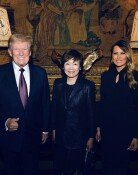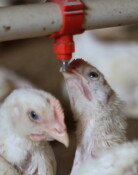G-20 Security Puzzled over Supervising Buddhist Temple
G-20 Security Puzzled over Supervising Buddhist Temple
Posted October. 28, 2010 13:55,
Police are agonizing over how to supervise the area in and around Bongeun Temple, a Buddhist facility located near the venue of the G-20 Seoul summit next month.
The temple is just across the Seoul COEX and designated a guard and security zone subject to a law on the summit that bans public assembly and demonstrations within the zone.
The G-20 organizing committee and police are especially keen on managing the temple given that in the past, major religious facilities such as Myongdong Cathedral and Jogye Temple have served as safe havens for demonstrators.
In 2008, leaders of a group that masterminded candlelight vigils against the resumption of U.S. beef imports and of the progressive Korea Confederation of Trade Unions found sanctuary at Jogye Temple. Police had to wait until they left the temple grounds before arresting them.
A number of anti-government events have also been held at Bongeun, including a bazaar for curbing the four-river restoration project Oct. 9 attended by progressive civic groups opposed to the project and the sale of promotional leaflets pressing for opposition to the G-20 Seoul summit.
Another potential headache for police is that more than 2,000 Buddhists will likely visit the temple every day next month to pray for luck ahead of the College Scholastic Aptitude Test, which will come soon after the summit.
For this reason, police and the organizing committee considered shutting down the temple over the summit period, but backed down amid opposition from Bongeun, which said, The temple has never been closed over its 1,200-year history.
A Bongeun source said, The number of Buddhists registered with the temple is as high as 200,000, adding, We are distributing congregational member certificates to people will visit the temple over the summit period to pray for their childrens performance in the college admissions test.
A temple staff member in charge of civic groups said, An organization that disturbs prayer by Buddhists should be forced out. We also expect police not to try to enter the compound to make arrests or for other reasons.
jhk85@donga.com
Headline News
- Joint investigation headquarters asks Yoon to appear at the investigation office
- KDIC colonel: Cable ties and hoods to control NEC staff were prepared
- Results of real estate development diverged by accessibility to Gangnam
- New budget proposal reflecting Trump’s demand rejected
- Son Heung-min scores winning corner kick







